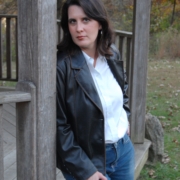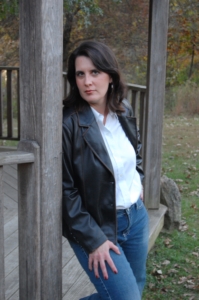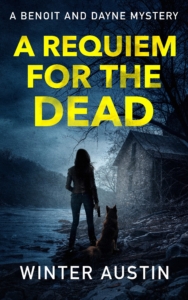The Secret Ingredient to Great Storytelling & a Free Book
from Mary Lee Ashford *
It’s been a busy month or so here with a new book coming out in May (Night of the Living Bread), a book festival, preparing for Malice Domestic and beginning work on the next book in the Sugar & Spice mystery series. Maybe because I’m at the very beginning of that fun process of starting a new book and thi s series is a culinary cozy mystery series, I got to thinking about food in fiction. And the role it plays in storytelling. Whether it’s the tantalizing descriptions of a cozy café (like the Red Hen Diner) in a small-town mystery, a feast fit for a king in a grand historical, or the comforting home-cooked meals shared between characters, food plays a vital role in storytelling.
s series is a culinary cozy mystery series, I got to thinking about food in fiction. And the role it plays in storytelling. Whether it’s the tantalizing descriptions of a cozy café (like the Red Hen Diner) in a small-town mystery, a feast fit for a king in a grand historical, or the comforting home-cooked meals shared between characters, food plays a vital role in storytelling.
Here are a few of the reasons I came up with as to why that is:
1. Food Adds Atmosphere and Setting
Food has an incredible ability to evoke a sense of place and time, immersing us in the world of the story. It adds layers of sensory detail that bring the book’s setting to life without a lot of descriptive narrative. Kind of a shorthand that give us clues to both place and vibe.
3. Food Appeals to the Senses
Reading about food is a feast for the imagination. When a novel describes the crunch of a flaky pie crust, the tang of freshly squeezed lemonade, or the aroma of slow-cooked stew, it engages our senses in a visceral way. These vivid descriptions make stories feel richer and more immersive.
3. Food Builds Character Depth
What a character eats (or refuses to eat) can tell us so much about them. Is the detective addicted to strong black coffee and greasy diner food? Does the heroine bake elaborate cakes as a way to process her emotions? The way characters interact with food—whether they savor it, scorn it, or use it as a coping mechanism—reveals their personality, background, and even emotional state. Additionally, who they share it with and how gives us insight into relationships in the story.
4. Food Can Add Comfort or Danger
In cozy mysteries, food often serves as a comforting, warm element—think charming bakeries and steaming cups of tea. But in darker genres, food can be used to heighten tension. A glass of wine could be poisoned. A fancy banquet might hint at secrets hidden beneath a veneer of civility. Whether it’s a source of comfort or conflict, food is never just about sustenance—it’s about what’s going on in people’s lives.
5. Food Evokes Emotions
Certain tastes have the power to transport us back in time. The scent of fresh-baked cookies might remind us of childhood memories or memories of when our children were young. A family recipe can stir up old memories and emotions. Food is tied to our personal histories. In fact, a recent Harvard study found that food is “an effective trigger of deeper memories of feelings and emotions.” There was a lot more about the hippocampus, neurotransmitters, and declarative memories but the bottom line is food is a strong connector to emotion.
What are your thoughts? Do certain foods bring back memories for you? Do you have a particular sub-genre of culinary mysteries that you enjoy?
The Sugar & Spice Mysteries feature former magazine editor, Sugar Calloway and blue-ribbon baker, Dixie Spicer, who have launched a community cookbook business. One reviewer says, “When you add to the likeable characters, a fine small town setting, an interesting cozy mystery plot, and loads of yummy food, you have a recipe for success!”
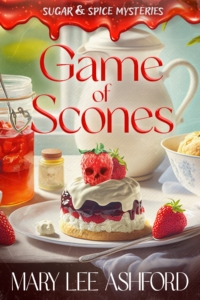
Currently my publisher is offering a Kindle Deal on GAME OF SCONES, so if you don’t already have a copy here’s your chance to grab the first book in the series for free! GAME OF SCONES OFFER
*Mary Lee Ashford is the author of the Sugar & Spice mystery series from Oliver Heber Books and also half of the Sparkle Abbey writing team who pen the national best-selling Pampered Pets series. She is a lifelong bibliophile, an avid reader, and public library champion. Prior to publishing Mary Lee won the Daphne du Maurier Award for Excellence in Mystery/Suspense. She is the founding president of Sisters in Crime – Iowa as well as a member of Mystery Writers of America and Novelists, Inc. She lives in the Midwest with her family and her feline coworker.

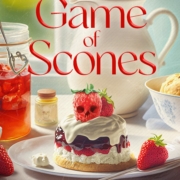

 I received some very good news recently when I learned that
I received some very good news recently when I learned that 
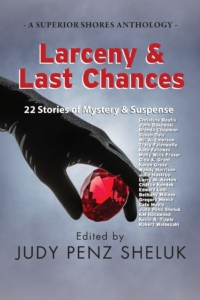 May 2024: Finalize cover art (with a nod to my graphic artist, Hunter Martin).
May 2024: Finalize cover art (with a nod to my graphic artist, Hunter Martin).

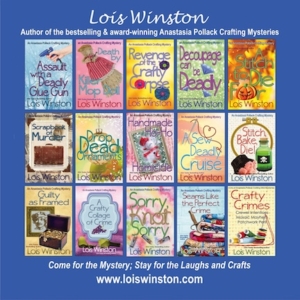 USA Today and Amazon bestselling author Lois Winston began her award-winning writing career with
USA Today and Amazon bestselling author Lois Winston began her award-winning writing career with  By Lois Winston
By Lois Winston P.S.: On Monday evening, January 27th at 7pm ET (6pm CT, 5pm MT, and 4pm PT), I’ll be the guest of the Cozy Mystery Party Facebook Group, hosted by Heather Harrisson and Shawn Stevens. If you’d like to join in for a fun hour + of all things murder, mayhem, and cozy mysteries (there will be prizes and surprises!), join the group at
P.S.: On Monday evening, January 27th at 7pm ET (6pm CT, 5pm MT, and 4pm PT), I’ll be the guest of the Cozy Mystery Party Facebook Group, hosted by Heather Harrisson and Shawn Stevens. If you’d like to join in for a fun hour + of all things murder, mayhem, and cozy mysteries (there will be prizes and surprises!), join the group at 

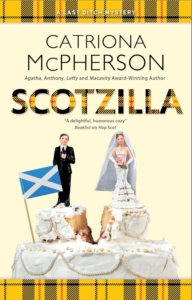



 Bethany Maines is the award-winning indie and traditionally published author of romantic action-adventure and fantasy novels that focus on women who know when to apply lipstick and when to apply a foot to someone’s hind-end. She can usually found chasing after her daughter or glued to the computer working on her next novel or screenplay.
Bethany Maines is the award-winning indie and traditionally published author of romantic action-adventure and fantasy novels that focus on women who know when to apply lipstick and when to apply a foot to someone’s hind-end. She can usually found chasing after her daughter or glued to the computer working on her next novel or screenplay.
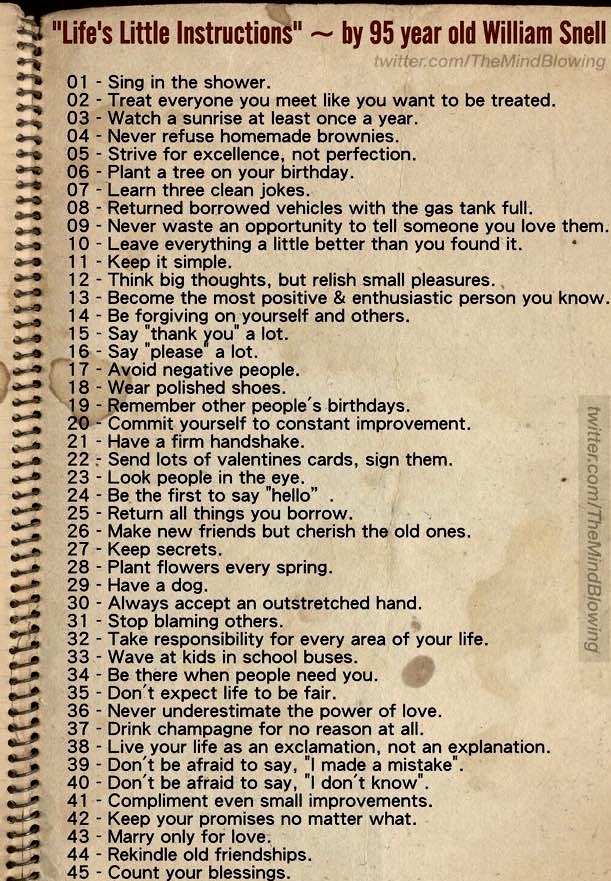 Or, perhaps we just want to work at developing a new and improved version of ourselves.
Or, perhaps we just want to work at developing a new and improved version of ourselves. Yet I heartily agree with #29. Dogs absolutely make make us better humans. And though I can’t remember the last time I waved at kids on a school bus (#33), I always wave at them when the zoo train comes around. Hopefully that counts.
Yet I heartily agree with #29. Dogs absolutely make make us better humans. And though I can’t remember the last time I waved at kids on a school bus (#33), I always wave at them when the zoo train comes around. Hopefully that counts.

 Seasonal Mood Disorder Better Known (for me) as December
Seasonal Mood Disorder Better Known (for me) as December therapy exercises. After that, my husband and I played cards and watched a half hour of television.
therapy exercises. After that, my husband and I played cards and watched a half hour of television.
